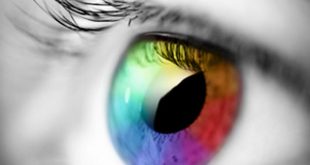
Salt contains 40% sodium and 60% chlorine. Too much sodium can cause high blood pressure, kidney stones, and cardiovascular disease. Too little sodium can cause dizziness and hyponatremia.
According to the World Health Organization, your daily intake of salt should not exceed 1.5g, or over half a teaspoon of table salt. When you take more than the recommended amount, it can be dangerous for your health. Here are five signs you’re consuming too much salt:
1) Feeling thirsty constantly
Studies show that foods with high sodium content can affect the body’s fluid balance. When you consume too much salt, you’re likely to feel thirsty most of the time. Drinking enough water is the best method to correct this. Your body continues to indicate that it requires more water in order to restore salt balance. It is also suggested that you avoid processed foods and instead opt for vegetables and fresh fruits.
Excessive salt consumption can raise your blood pressure. High blood pressure is caused by the increased amount of blood pushing against the blood vessel walls. Sodium is predominantly found in human blood, where it attracts water. As a result, if you consume too much sodium, your bloodstream will absorb more water.
Consuming too much salt can make you feel bloated because sodium attracts water. When you consume too much salt, you’re likely to experience fluid retention and swelling in strange places, e.g., fingers or toes.
When you consume too much salt, you’re likely to experience mild and constant headaches. Salty foods can trigger migraines and also cause blood vessels in the brain to expand, which can lead to painful and frequent headaches.
One of the most obvious signs of excessive salt consumption is frequent urination. Sometimes, drinking too much salt might not be the cause of your frequent urination. Eating too much salt can also be the cause. In order to stop this, it’s better to cut your salt intake of salt and also drink plenty of fluids in order to get rid of the excess salt.
 Top Naija News: Nigerian News, Breaking News Nigeria and World News Top Naija News is a daily news publication in Nigeria, delivering the latest breaking news in Nigeria and around the world.
Top Naija News: Nigerian News, Breaking News Nigeria and World News Top Naija News is a daily news publication in Nigeria, delivering the latest breaking news in Nigeria and around the world.



